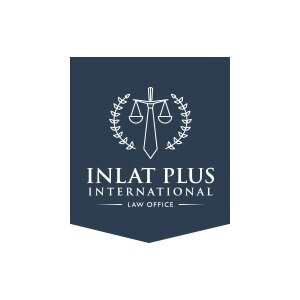Best Child Visitation Lawyers in Riga
Share your needs with us, get contacted by law firms.
Free. Takes 2 min.
Free Guide to Hiring a Family Lawyer
List of the best lawyers in Riga, Latvia
About Child Visitation Law in Riga, Latvia
In Riga, Latvia, child visitation laws are designed to ensure that children maintain healthy relationships with both parents, even after a separation or divorce. The legal framework prioritizes the best interests of the child, ensuring their emotional and developmental needs are met. The process typically involves establishing a visitation schedule that accommodates the child's well-being while respecting the rights and responsibilities of both parents.
Why You May Need a Lawyer
Engaging a lawyer for child visitation matters in Riga can be beneficial in several scenarios. You might need legal assistance if you are experiencing challenges in reaching an amicable visitation arrangement, or if one parent is denying or violating the agreed-upon visitation schedule. Legal guidance is also essential if there are concerns about the child's safety during visits, or if modifications to an existing arrangement are required due to changing circumstances.
Local Laws Overview
The legal system in Latvia prioritizes the child's welfare when determining visitation rights. Key aspects include the necessity for court approval of any formal visitation agreements and the possibility for revisions in case of substantial changes in circumstances. The court may also consider the child's own wishes, depending on their age and maturity. Typically, both parents are encouraged to negotiate and agree on a suitable visitation schedule, resorting to legal intervention as a last resort.
Frequently Asked Questions
What is the typical process for establishing a child visitation schedule?
Usually, parents are encouraged to mutually agree on a visitation schedule. If an agreement cannot be reached, they might engage in mediation or seek a court's intervention.
Can a child refuse to visit the non-custodial parent?
The court may consider the child's views, especially for older children. However, efforts are generally made to facilitate visits unless there are serious concerns about the child’s welfare.
What can I do if the other parent denies my visitation rights?
If visitation rights are violated, you can seek legal enforcement through the courts to ensure compliance with the agreement.
Are there any restrictions on where visitation can take place?
Visitation typically takes place at a location agreed upon by both parents or determined by a court order based on the child's best interest.
Can visitation terms be modified?
Yes, if there is a significant change in circumstances, either parent can request a modification of the visitation terms through the courts.
How does domestic violence affect visitation rights?
In cases of domestic violence, visitation may be supervised or restricted to ensure the child’s and custodial parent’s safety.
Is mediation mandatory for disputed visitation issues?
While not mandatory, mediation is often encouraged as a helpful first step before resorting to court proceedings.
How are visitation rights affected if a parent moves to a different city or country?
Relocation can impact visitation, often requiring a modification to the existing arrangements to accommodate new logistics and maintain the child's relationship with both parents.
Who makes decisions about the child's activities during visitation?
The non-custodial parent typically makes decisions regarding day-to-day activities during visitation unless restricted by the court or agreement.
What legal documents are needed for processing child visitation?
Documents may include a formal visitation agreement, court orders, and any relevant legal correspondence or mediation records.
Additional Resources
For those seeking more information or assistance, several resources are available in Riga. The Latvian Ministry of Justice and the State Inspectorate for Protection of Children’s Rights provide guidance on family law matters. Additionally, local family law attorneys or legal aid organizations can offer personalized legal advice.
Next Steps
If you need legal assistance with child visitation in Riga, it is advisable to consult with a family law attorney who is familiar with local statutes and practices. Begin by gathering all relevant documents, such as previous visitation agreements or court orders. Consider exploring mediation services to address any disputes amicably before proceeding with legal action. Contact a legal professional or local judicial offices for advice specific to your situation, and consider local legal aid services if financial constraints are a concern.
Lawzana helps you find the best lawyers and law firms in Riga through a curated and pre-screened list of qualified legal professionals. Our platform offers rankings and detailed profiles of attorneys and law firms, allowing you to compare based on practice areas, including Child Visitation, experience, and client feedback.
Each profile includes a description of the firm's areas of practice, client reviews, team members and partners, year of establishment, spoken languages, office locations, contact information, social media presence, and any published articles or resources. Most firms on our platform speak English and are experienced in both local and international legal matters.
Get a quote from top-rated law firms in Riga, Latvia — quickly, securely, and without unnecessary hassle.
Disclaimer:
The information provided on this page is for general informational purposes only and does not constitute legal advice. While we strive to ensure the accuracy and relevance of the content, legal information may change over time, and interpretations of the law can vary. You should always consult with a qualified legal professional for advice specific to your situation.
We disclaim all liability for actions taken or not taken based on the content of this page. If you believe any information is incorrect or outdated, please contact us, and we will review and update it where appropriate.











